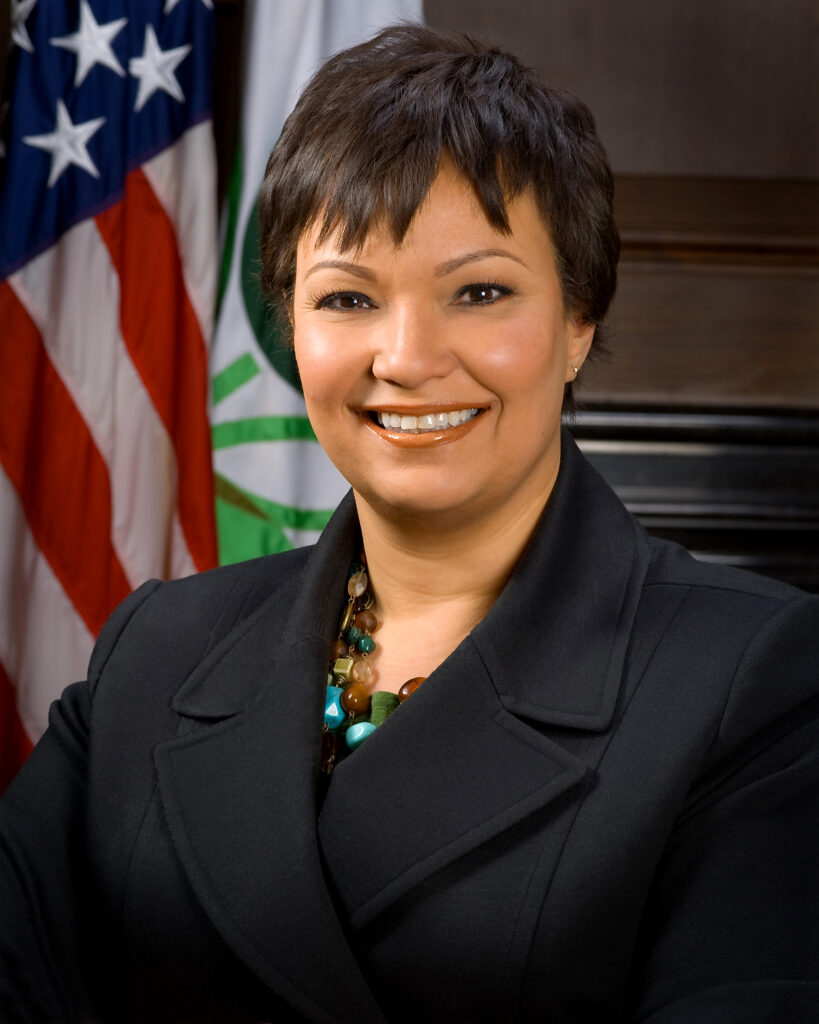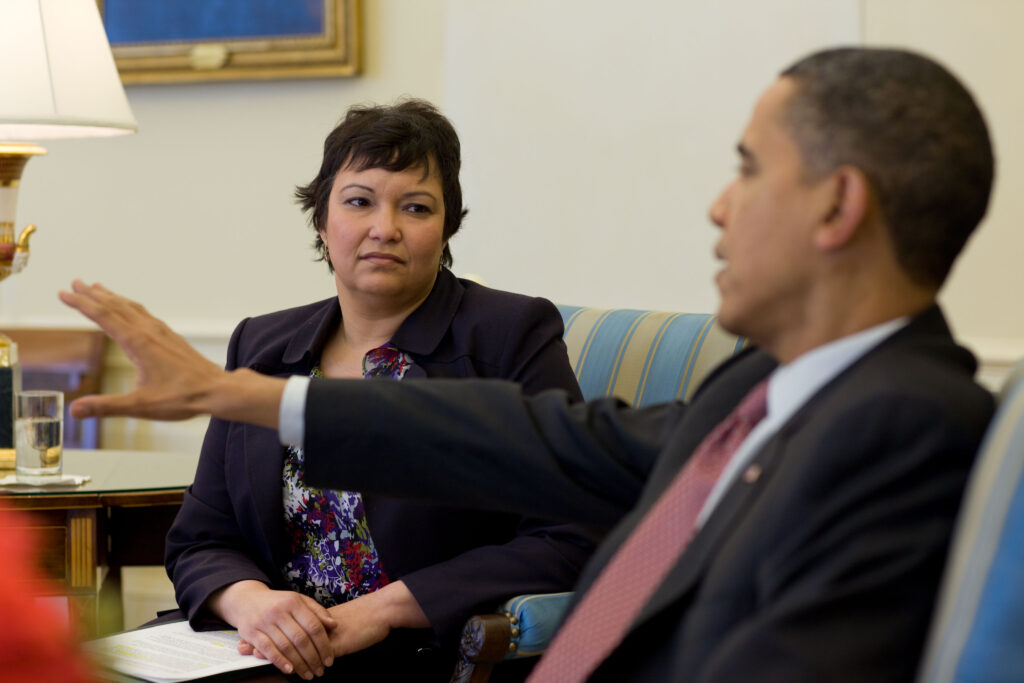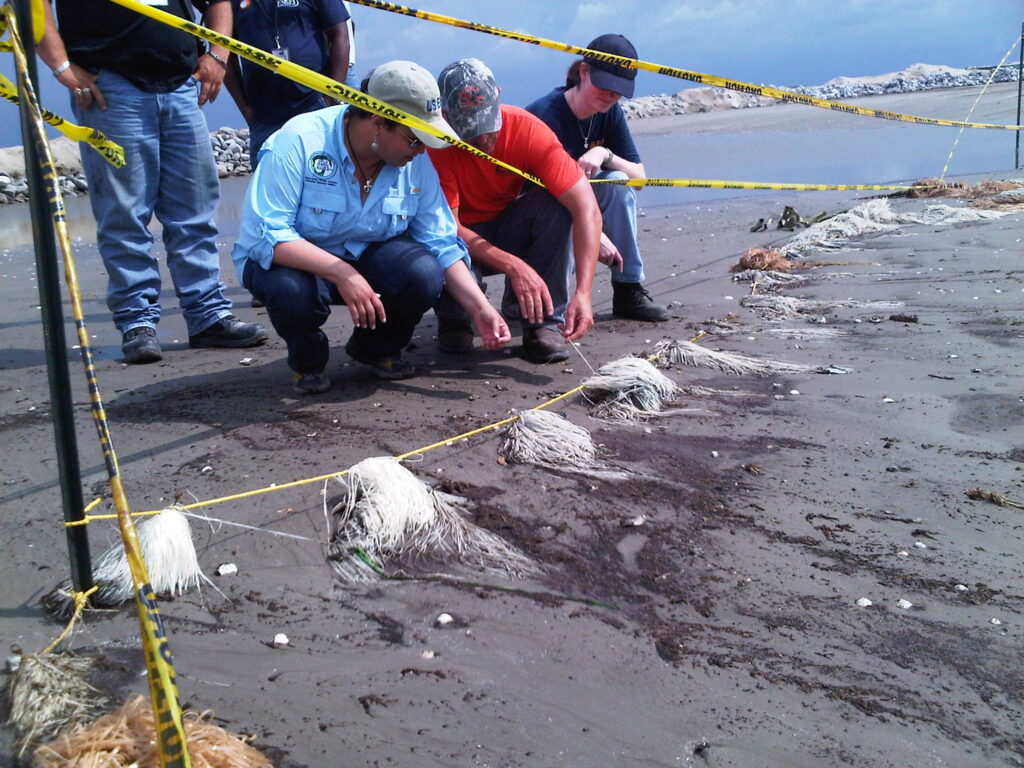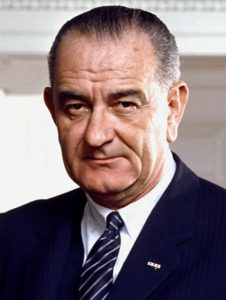Lisa Perez Jackson has traveled a largely straight career path—and one that led steadily up to the highest levels of environmental leadership. And as an African-American woman, she demonstrates that a similar career path is available to anyone with the courage and dedication to take on the challenge.

Jackson was born in Philadelphia on February 8, 1962. She was adopted when two weeks old by Benjamin and Marie Perez, and grew up in New Orleans’ Ninth Ward. As she grew up in her mostly minority, working-class neighborhood, she experienced that the environment was not neutral—poorer people suffered much more from pollution and environmental neglect than did wealthier people. She decided to dedicate her career to helping people live better lives. She loved science and math, and was an excellent student—the valedictorian of her high school graduating class.
That success led to a scholarship to Tulane, where she intended to become a doctor. But a summer engineering program and her study of the Love Canal disaster convinced her to switch to engineering. As she remembered, “…I came to realize that by protecting our environment I was approaching the same problem from a different angle—by making sure people didn’t get sick in the first place.” She completed chemical engineering degrees from Tulane (BSE in 1983) and Princeton (MS in 1986).
She joined the US Environmental Protection Agency in 1987 as an engineer, working first in Washington, DC, and then New York City. She worked primarily on the remediation of toxic contaminant sites (Superfund sites), especially in New Jersey. She worked for the EPA for 19 years, including stints as deputy director and acting director of the Northeast Region’s enforcement division.
She left the EPA in 2006 to become the leader of the New Jersey Department of Environmental Protection. Along with pollution control, that agency also included historic preservation, state parks and fish and wildlife, giving Jackson much broader responsibility for conservation and environmental sustainability.

Three years later, President Obama tapped Jackson to become Administrator of the EPA. She took office in January, 2009, the first African-American and third woman in that role. She observed, “Serving as EPA Administrator holds a special significance for me. I didn’t see African-Americans in positions of leadership in government when I was a child. Being able to serve in this role is a tremendous credit to the bold individuals before me who fought for equality for over a hundred years.”
At EPA, Jackson worked to modernize the nation’s approach to toxic chemicals and raised the environmental performance standards of vehicles. She led the agency’s response to the 2010 Deepwater Horizon oil spill. Perhaps most important was her leadership of efforts to declare carbon dioxide a pollutant, clearing the way for more direct mitigation of climate change. She scoffed at the idea that environmental regulation depressed the economy. She said, “The rules and standards EPA enforces not only protect human health, but inspire innovation in industries seeking to be cleaner and more efficient. These new ideas and processes open doors for new jobs and spur our economy.” She served as EPA Administrator until 2013.

She joined Apple, Inc. after that and now serves as the company’s Vice President of Environment, Policy and Social Initiatives. Under her guidance, Apple has achieved 100% renewable power and is working to expand renewable energy use through its supply chain.
Jackson exemplifies how science, technology, education and community action can improve lives. She sits on the leadership boards for Tulane University and Conservation International, among other groups. But passion, she asserts, is a fundamental necessity for success: “… The technology might be the spark, but what keeps the flame going is you find your passion and you use technology to advance what you care about.”
References:
Howard-Titlon Memorial Library, Tulane University. Lis Perez Jackson. Available at: https://exhibits.tulane.edu/exhibit/tulanewomen/academicwomen/lisa-perez-jackson/. Accessed January 26, 2021.
Jackson, Lisa P. 2011. Lisa Jackson’s Story: Protecting the Health and the Environment of the American People. The White House, February 3, 2011. Available at: https://obamawhitehouse.archives.gov/blog/2011/02/03/lisa-jacksons-story-protecting-health-and-environment-american-people. Accessed January 26, 2021.
Travis, Mary Ann. 2019. Lisa Jackson, recipient of 2019 Tulane Distinguished Alumni Award, acts on making the world better. Tulane University. Available at: https://news.tulane.edu/news/lisa-jackson-recipient-2019-tulane-distinguished-alumni-award-acts-making-world-better. Accessed January 26, 2021.
Wilcox-Lee, Naomi. 2017. Lisa Perez Jackson: A Life in Balance. Sheroes of History, October 26, 2017. Available at: https://sheroesofhistory.wordpress.com/2017/10/26/lisa-perez-jackson-a-life-in-balance/. Accessed January 25, 2021.

